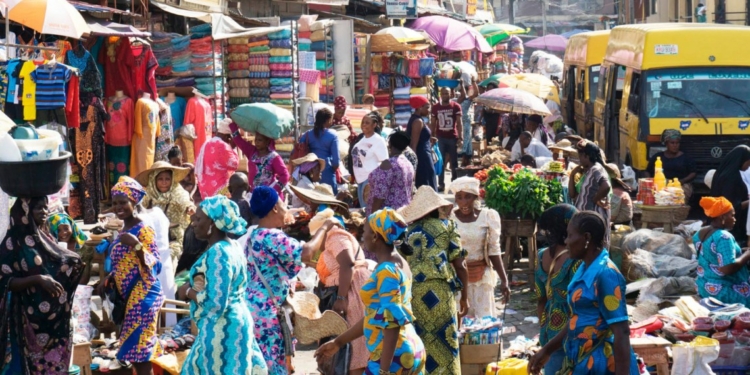After attaining the highest level in 30 months in October, Nigeria’s headline inflation climbed further to 14.89 per cent, the latest figures by the National Bureau of Statistics (NBS) show.
This is the 14th straight month the rate has quickened. This may be attributed to the rise in food prices initially caused by border closures, dollar restrictions and the recent banditry attacks that are preventing farmers from producing food.
The report published on the website of the bureau on Tuesday shows that the new inflation rate is 0.66 per cent points higher than the rate recorded in October 2020 (14.23 per cent).
Nigeria’s inflation had earlier been affected by the federal government’s decision to shut its land borders.
It became worse with the emergence of the coronavirus which affected the global economy.
The economy is yet to recover from the coronavirus effects and the plunge in crude prices.
And recently, suspected members of the Boko Haram killed 44 rice farmers while harvesting their crops in Zabarmari, a Borno community known for rice farming.
This is one of the many pronounced cases of the insurgents preventing farmers from either cultivating or harvesting their crops, eventually leading to rise in food prices .
In the latest report, the composite food index rose sharply by 18.30 per cent in November 2020 compared to 17.38 per cent in October 2020.
This rise in the food index was caused by increases in prices of bread and cereals, potatoes, yam and other tubers, meat, fish, fruits, vegetables and oils and fats.
On month-on-month basis, the food sub-index increased by 2.04 per cent in November 2020, up by 0.08 per cent points from 1.96 per cent recorded in October 2020.
For core inflation, which excludes the prices of volatile agricultural produce stood at 11.05 per cent in November 2020, down by 0.09 per cent when compared with 11.14 per cent recorded in October 2020.
The highest increases were recorded in prices of passenger transport by air, medical services, hospital services, repair of furniture, passenger transport by road, maintenance and repair of personal transport equipment, vehicle spare parts, hairdressing salons and personal grooming establishments, pharmaceutical products, paramedical services and motor cars.






Discussion about this post